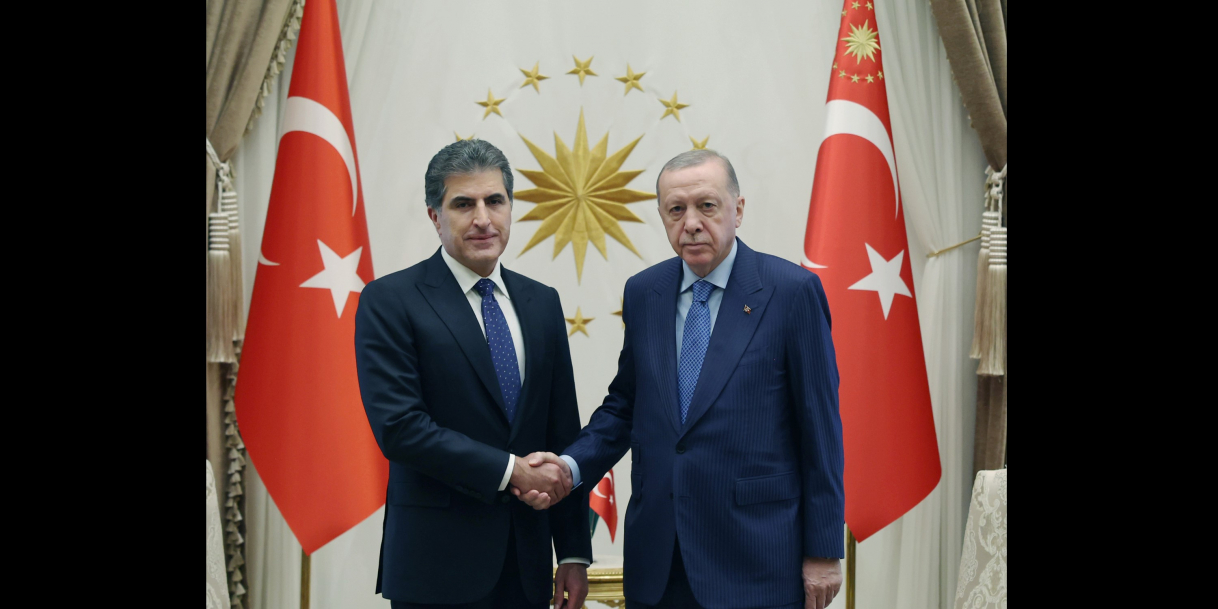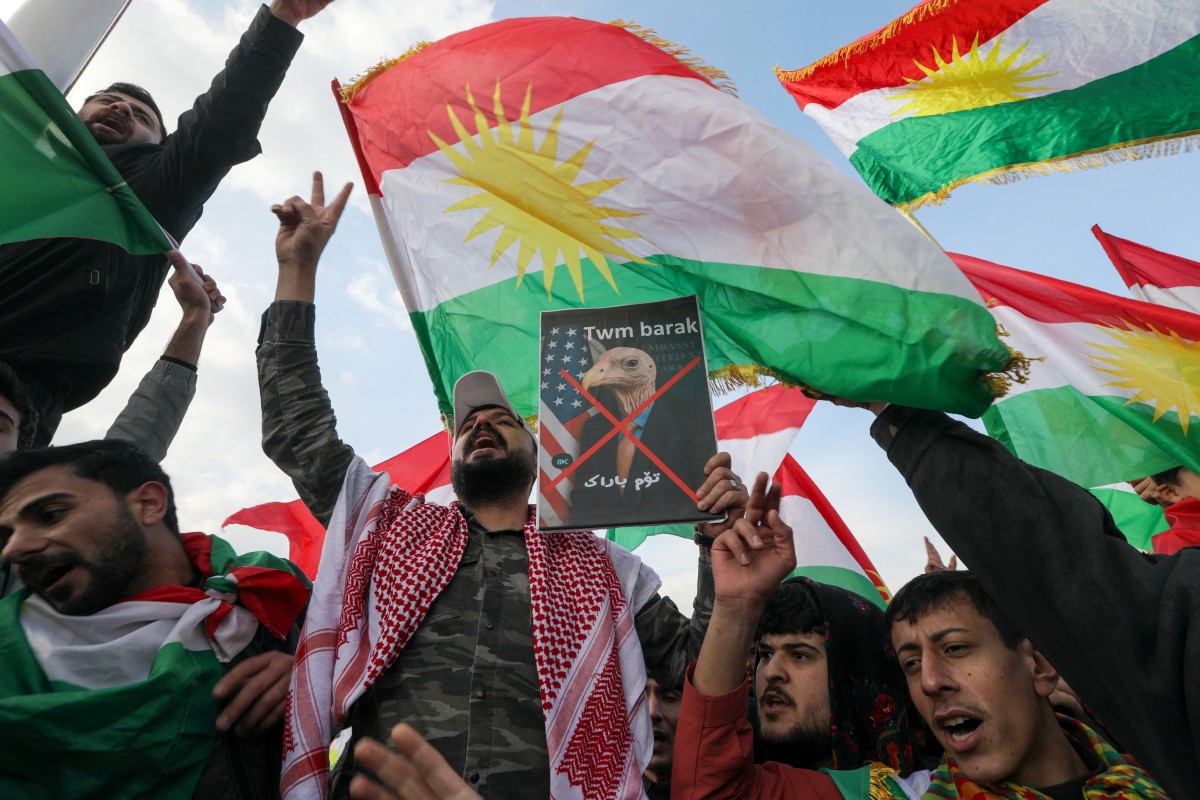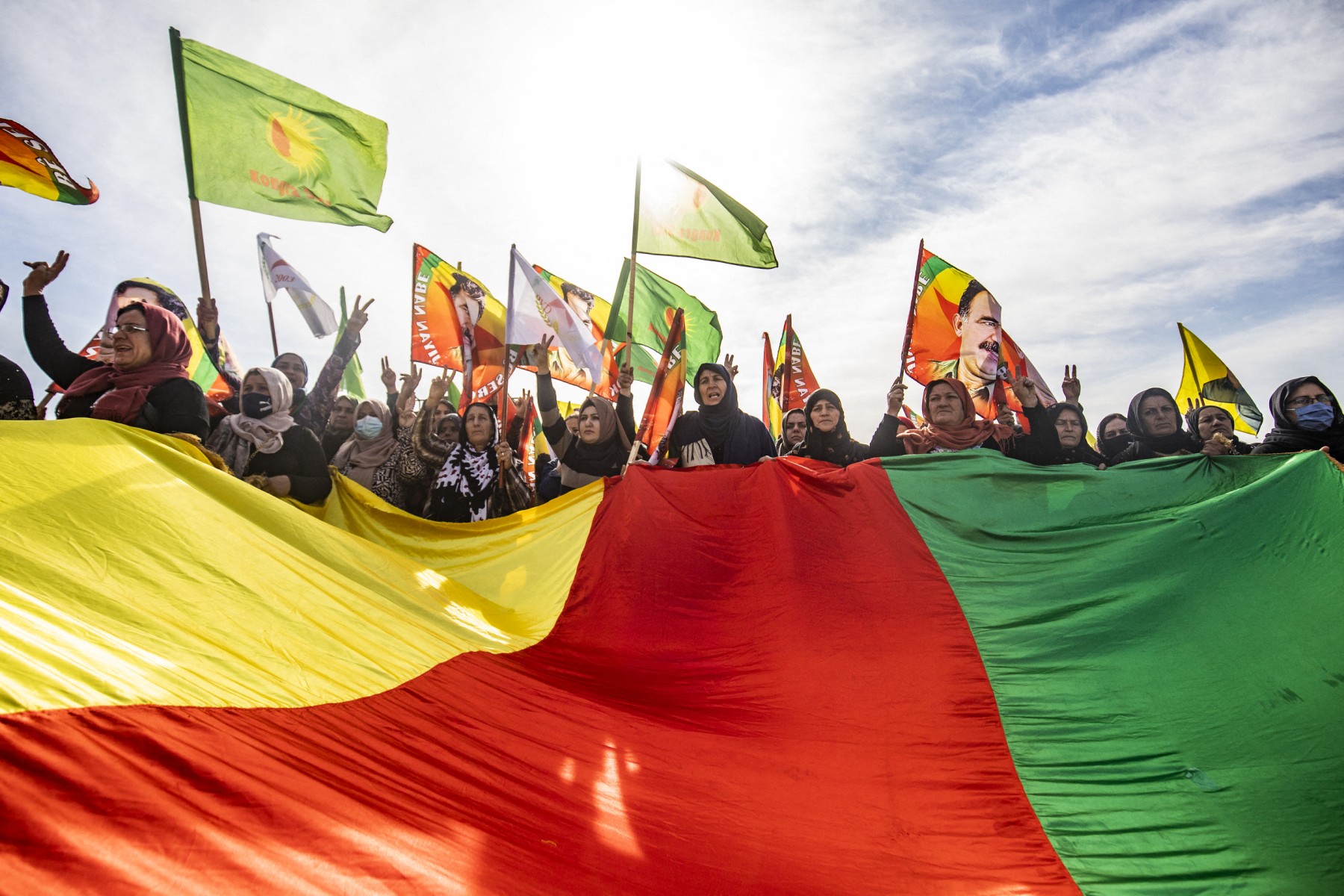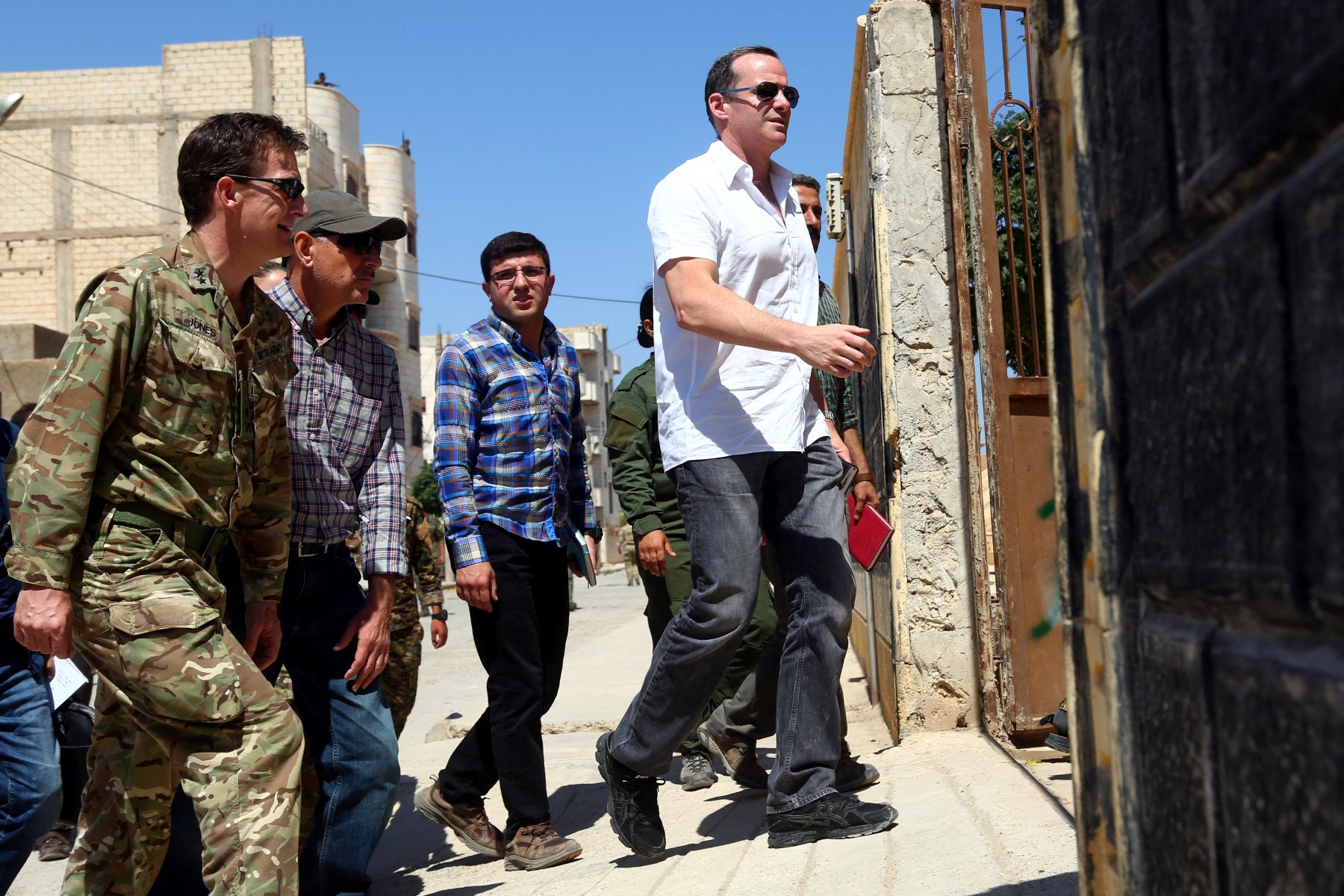Claim versus Record: Who Blocks the Road to Peace between the PKK and Turkey?

Picture credits: Presidency of The Republic Türkiye Directorate of Communications website
Picture credits: Presidency of the Republic Türkiye Directorate of Communications website
On 8 October 2025, just before his visit to Ankara, Kurdistan Region President Nechirvan Barzani, in a speech at the MERI Forum held in Erbil, said that he felt Turkey is “very serious” about the peace process with the Kurdistan Workers’ Party (PKK). “Qandil [PKK] knows what to do, but it fails to do it. Failure to do it creates disappointment, even for Leader Öcalan. This is not good. They say on the surface that they will obey Leader Öcalan, but when it comes to implementation, they do the opposite. This will cause a major blow to the Kurds and the process. It is not the time for these games, which are obvious,” he added.
Stating that Barzani’s words were “completely unacceptable,” the KCK Foreign Relations Committee emphasized that they had taken concrete steps to launch the peace process in line with Öcalan’s demands…
The KCK (Koma Civakên Kurdistan—Kurdistan Communities Union) responded quickly to this statement. Stating that Barzani’s words were “completely unacceptable,” the KCK Foreign Relations Committee emphasized that they had taken concrete steps to launch the peace process in line with Öcalan’s demands and argued that Barzani used a tone that inverted the facts. “Speaking with the arguments of the Turkish state does not serve the Kurdish people or the forces of democracy. Nechirvan Barzani’s attempt to create the perception of a contradiction between Abdullah Öcalan and our Movement, by suggesting that ‘the PKK does not listen to Abdullah Öcalan’, is a grave mistake.”, the KCK stated.
The KCK statement listed in detail the steps the PKK has already taken in the framework of the peace process. For example, in response to Öcalan’s call on 27 February, the PKK had convened its 12th Congress on 5–7 May 2025 and announced to the world that it had “decided to cease all activities under the name PKK” and “abandoned the strategy of armed struggle.” As further proof of their commitment to the process, the statement underscored that on 11 July 2025, a group of 30 PKK members, led by KCK Executive Council Co-Chair Besê Hozat, symbolically burned their weapons. The KCK asserted, “There is no disagreement between us and Öcalan. The PKK listens to Abdullah Öcalan,” rejecting any rift implied by Barzani. It also drew attention to the timing of Barzani’s remarks on the eve of his visit to Turkey and called on him to abandon this stance.
As a matter of fact, over the past 26 years, since Öcalan was abducted in Kenya on February 15, 1999, and brought to Turkey (under the rule of the Justice and Development Party AKP for most of this period), the claim that the PKK has not followed or will not follow Öcalan’s line has been circulated many times. However, a look at the last three decades tells a different story.
1999-2004 Non-engagement
After his capture in 1999, Abdullah Öcalanmade a call to the PKK to halt armed struggle and to withdraw guerrilla forces from Northern Kurdistan. The PKK positively responded to his call and withdrew forces in August 1999. Again, following Öcalan’s call, two groups of PKK members from Europe and the guerrilla forces returned to Turkey in gestures towards peace. Turkey, however, sentenced these people to long prison terms.
In January 2000, the PKK held an extraordinary congress. This seventh congress of the PKK officially accepted a new party line based on Öcalan’s project for a democratic republic. From 1999 to 2004, the PKK remained in a state of non-engagement. During this period, Ankara did not seek to convert the PKK’s non-engagement into a lasting peace agreement; despite Öcalan’s readiness for negotiations with the state, no official dialogue was established.
2009 Ceasefire
For the first time, a Turkish government, now led by the AKP, openly announced a democratization and solution phase called the “Kurdish Opening.” A ceasefire was declared, and, upon Öcalan’s call, a “Peace Group” of 34 people from Qandil and Makhmour entered Turkey in October 2009 to contribute to the peace process. Initially, there was no objection, but as Turkish nationalist reactions created backlash, lawsuits were filed against many members of the delegation, leading to 13 of them being arrested.
2013–2015 Peace Process
Öcalan called for “bidding farewell to arms” and formally requested the declaration of a ceasefire. Shortly thereafter, the PKK again began withdrawing its militants beyond Turkey’s borders.
This was the period closest to peace. The PKK’s initiatives and the AKP government’s search had opened a new door for dialogue at the end of 2012. Talks that had previously begun in Oslo continued for a long time. Soon, the People’s Democratic Party (HDP) delegations started meeting Abdullah Öcalan on İmralı Island. In a letter sent for Newroz on 21 March 2013, Öcalan called for “bidding farewell to arms” and formally requested the declaration of a ceasefire. Shortly thereafter, the PKK again began withdrawing its militants beyond Turkey’s borders. Clashes ceased for roughly two years. However, after the 2015 elections, the process broke down, and a decade of intense violence ensued. In the period that followed, the Kurdish movement made repeated attempts to return to the negotiation table. The Turkish state, however, imposed heavy isolation measures on Öcalan, making any communication about peace impossible.
2024–2025 New Peace Initiative
For the first time since 2015, a new possibility for dialogue emerged in Turkey in the fall of 2024. At the opening of the Grand National Assembly of Turkey on 1 October 2024, Nationalist Movement Party (MHP) leader Devlet Bahçeli’s handshake with representatives of the DEM Party (the HDP’s successor) and his remark, “If we want peace in the world, we must secure peace in our own country,” drew attention. Following Abdullah Öcalan’s call on 27 February 2025, the PKK convened its 12th Congress, announcing, on 12 May 2025, its decision to formally dissolve its organizational structure and end the armed struggle. This move was qualitatively different from all previous ceasefires. The most far-reaching steps and developments to date have taken place as a result. Despite all these steps, Ankara has not taken concrete steps. It is noteworthy that, in response to the PKK’s actions, the Turkish state has mostly adopted a cautious and, at times, negative stance.
In sum, from 1993 to the present, Abdullah Öcalan made several ceasefire calls, and the PKK complied with all of them.
In sum, from 1993 to the present, Abdullah Öcalan made several ceasefire calls, and the PKK complied with all of them. Previous peace initiatives have failed at times due to provocations by hardline elements within the state. At other times, a lack of political will or regional developments caused major obstacles to progress. In this most recent phase, the PKK has gone as far as taking the decision to dissolve itself. Yet, no comprehensive social peace plan or legal framework regarding PKK fighters who lay down their arms has been announced by the state. In response to its steps, the PKK expects the implementation of political reforms that will achieve a just solution to the Kurdish question. Otherwise, the process will mainly constitute a call to “surrender” through the imposition of unilateral demands—something that has repeatedly failed in the past.
In short, contrary to what Barzani suggests, Abdullah Öcalan and the PKK have taken coordinated steps over the past 25 years.
Özgür Amed
Journalist and writer. Contributes to various newspapers and magazines. Works on memory, humor, politics, and cinema. Author of two books: Böbreği Kim Yedi (2018) and Kürdocul İşler (2011).



